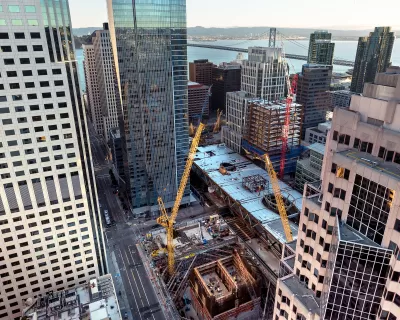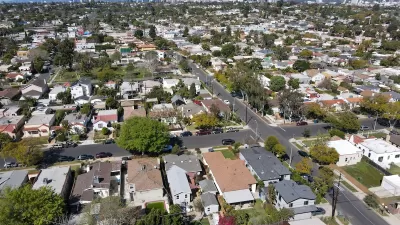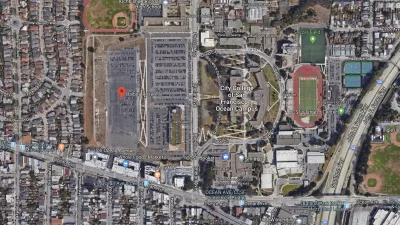Critics of inclusionary zoning frequently point to San Francisco as an example of what not to do. A sluggish year of development has some local politicians ready to reconsider the city’s program.

J.K. Dineen reports in a paywalled article for the San Francisco Chronicle that San Francisco Mayor London Breed is pushing to reconvene a “technical advisory committee” that meets periodically to revisit the city’s inclusionary zoning program. “The eight-person committee, which includes four mayoral and four Board of Supervisors appointees, has not met since February 2018,” according to Dineen.
The premise both of the article and the announcement by Breed’s office is that development in San Francisco is far too slow to provide the housing needed in the city. “So far this year San Francisco has had 1,161 units completed, putting the city on pace to see fewer than 3,000 new homes. Compare that to 2021 when 4,649 units came online. Meanwhile, there are 4,100 units under construction, compared to the high of 10,000 units that were being built in 2016 or 2017,” writes Dineen.
San Francisco’s approach to inclusionary zoning has long been a source of debate about the unintended (or intended) consequences of well-intentioned approaches to support affordable housing construction by requiring developers to include affordable housing in every new residential development. Some critics of the approach say that the requirements make many projects economic infeasible, defeating the purported purpose of the policy and point to San Francisco of a prime example of inclusionary zoning gone too far.
A co-sponsor of the most recent version of the city’s inclusionary zoning policy, Supervisor Aaron Peskin, is quoted in the article saying “it’s definitely time to reconvene” the technical assistance panel.

Alabama: Trump Terminates Settlements for Black Communities Harmed By Raw Sewage
Trump deemed the landmark civil rights agreement “illegal DEI and environmental justice policy.”

Planetizen Federal Action Tracker
A weekly monitor of how Trump’s orders and actions are impacting planners and planning in America.

Why Should We Subsidize Public Transportation?
Many public transit agencies face financial stress due to rising costs, declining fare revenue, and declining subsidies. Transit advocates must provide a strong business case for increasing public transit funding.

Understanding Road Diets
An explainer from Momentum highlights the advantages of reducing vehicle lanes in favor of more bike, transit, and pedestrian infrastructure.

New California Law Regulates Warehouse Pollution
A new law tightens building and emissions regulations for large distribution warehouses to mitigate air pollution and traffic in surrounding communities.

Phoenix Announces Opening Date for Light Rail Extension
The South Central extension will connect South Phoenix to downtown and other major hubs starting on June 7.
Urban Design for Planners 1: Software Tools
This six-course series explores essential urban design concepts using open source software and equips planners with the tools they need to participate fully in the urban design process.
Planning for Universal Design
Learn the tools for implementing Universal Design in planning regulations.
Caltrans
Smith Gee Studio
Institute for Housing and Urban Development Studies (IHS)
City of Grandview
Harvard GSD Executive Education
Toledo-Lucas County Plan Commissions
Salt Lake City
NYU Wagner Graduate School of Public Service





























